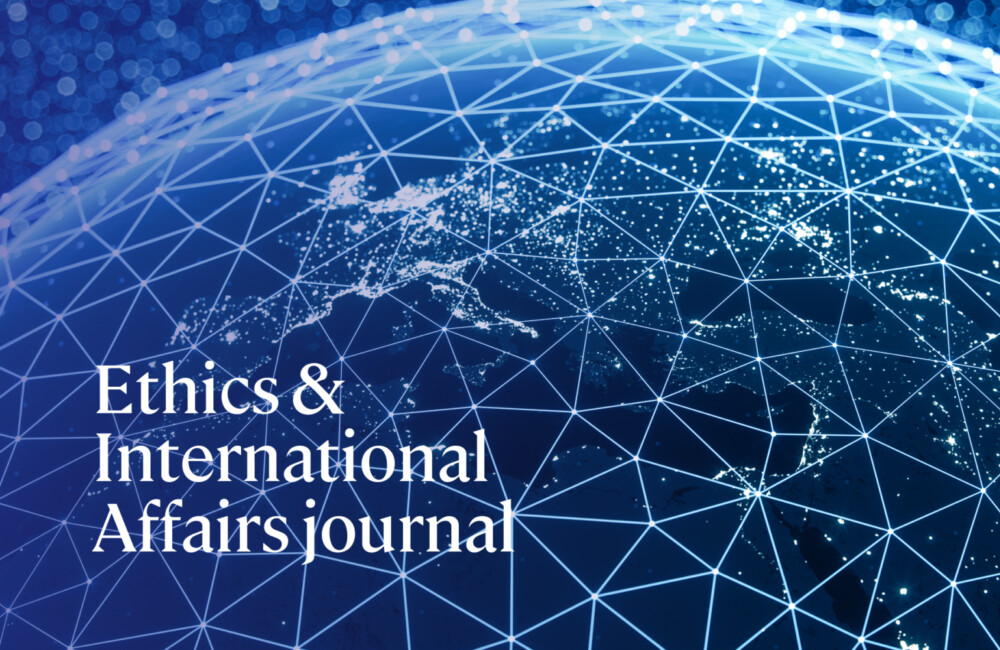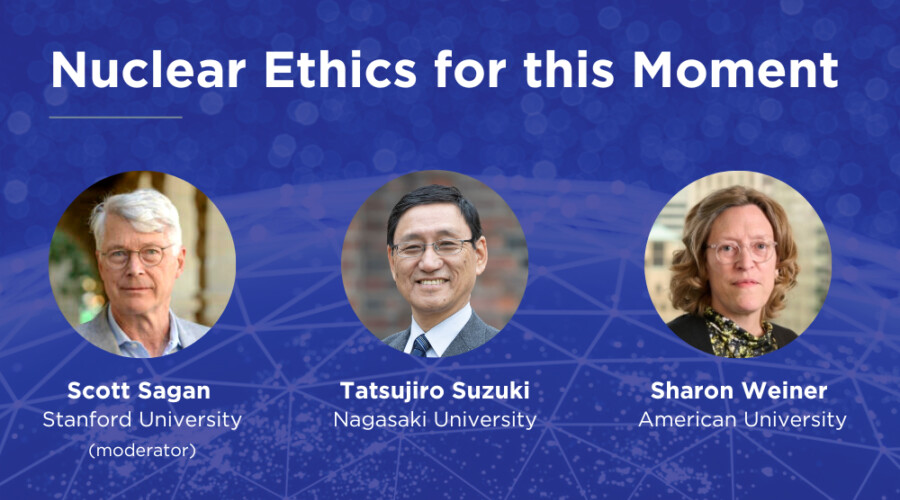Andrew F. MarchSecularism Confronts Islam
Olivier Roy, CNRS (French National Center for Scientific Research)
What we are witnessing in Europe," says Roy, "is a transformation from an ethnic minority into a faith community. These people want to be considered as citizens and Muslims. They don't consider themselves as a diaspora." (Public Affairs Lecture, November 2007)
The Stillborn God: Religion, Politics, and the Modern West
Mark Lilla, Columbia University
"It's not contemporary Islam that's the exception," says Mark Lilla. "We are the exception. We live on the other shore from those who see political theology as the only way of life, and we need to drop the illusion that we share a common vocabulary." (Public Affairs Lecture, September 2007)
Islam and the West: Essential Resources from the Carnegie Council
The Carnegie Council offers essential resources on Islam and the West, from discussions of "the clash of civilizations" theory to reports on the challenges of integrating Muslim immigrants in Europe and the United States. (March, 2007)
Review Essay: The Politics of Conceptualizing Islam and the West
Cemyl Aydin, University of North Carolina
Are critiques of the "West" peculiar to the Muslim world? Are they a reflection of a simple discontent with the international order or a conservative rejection of Western-originated, universal modernity? How should Western intellectuals and leaders respond to the Muslim critiques? (Ethics & International Affairs, Vol. 18.3, Winter 2004/05)
EXPANDING EUROPE: THE ETHICS OF EU-TURKEY RELATIONS
Thomas Diez
Turkey: Islamic Secularism or Secular Islam?
A Conversation with Ihsan Dagi
Does the election of an Islamist party in Turkey represent a challenge to the secular Turkish system? Council Fellow Ishan Dagi's take on recent political developments and their implications for U.S.-Turkey relations, EU-Turkey relations, and the human rights situation. (Interview transcript, February, 2003)
AMERICAN RELIGIOUS NGOS IN NORTH KOREA: A PARADOXICAL RELATIONSHIP
Scott Snyder
Famine in North Korea: Markets, Aid, and Reform
Marcus Noland,
According to Marcus Noland and Stephan Haggard, North Korea's famine was a result of the state's failure to adequately address food distribution and production issues; and although famine conditions have eased, North Korea still remaines "food insecure." (Global Policy Innovations Event, April 2007)
Engaging "Evil": Searching for an Ethical Approach to North Korea
Timothy Savage, Nautilus Institute for Security & Sustainable Development, Seoul
The temptation to focus on regime change as the solution to all the problems posed by Pyongyang is strong. But attempts to overthrow the regime or squeeze it into submission risk doing more evil than good for ordinary North Koreans. (Carnegie Ethics Online article, September 2007)
HUMAN RIGHTS VERSUS EMISSION RIGHTS: CLIMATE JUSTICE AND THE EQUITABLE DISTRIBUTION OF ECOLOGICAL SPACE
Tim Hayward
Fairness, Responsibility, and Climate Change
Paul G. Harris, Lingnan University, Hong Kong
Most literature on the ethics of global warming focuses on the obligations of industrialized states to reduce their emissions of greenhouse gases and to help poor countries do likewise. These books are no exception, arguing that the issue is a matter of international justice and equity. (Ethics & International Affairs, Vol. 17.1, Spring 2003)
The Global Warming Tragedy and the Dangerous Illusion of the Kyoto Protocol
Stephen M. Gardiner, University of Washington, Seattle
Gardiner insists that the Kyoto agreement, far from being too demanding, does too little to protect future generations. (Ethics & International Affairs, Vol. 18.1, Winter 2004)
Book Review: The Real Environmental Crisis: Why Poverty, not Affluence is the Environment's Number One Enemy
Jack M. Hollander [Reviewed by Dale Jamieson, New York University]
Rather than squandering our resources on such questionable endeavors as reducing greenhouse gas emissions, we should lift up poor people in the developing world. This is an important message that many Americans need to hear. (Ethics & International Affairs, Vol. 18.1, Winter 2004)
Red Sky at Morning: America and the Crisis of the Global Environment
James Gustav Speth, Yale School of Forestry & Environmental Studies
Speth's recommended steps for transitioning into sustainability range from creating a world environmental organization with the requisite power to make treaties with teeth, to encouraging innovative measures at the local level—what he calls "green jazz." (Public Affairs Lecture, April 2004)
The Ethics of Climate Change and the Global Economy
Matthew Taylor, RSA
Two features of the global warming thesis offer a rationale for citizens in high emission nations to refuse to act: the science of climate change is contested, and the microcosmic impact of any individual’s carbon footprint. To deal with these, the philosophical case needs to be bolstered. (Online conversation with Council President Joel Rosenthal, July 2007)
STATES OF RISK: SHOULD COSMOPOLITANS FAVOR THEIR COMPATRIOTS?
Richard Vernon
The Democratic Minimum: Is Democracy a Means to Global Justice?
James Bohman, St. Louis University
Bohman argues that "transnational democracy provides the basis for a solution to the problem of the “democratic circle”—that in order for democracy to promote justice, it must already be just—at the international level. Transnational democracy could be a means to global justice." (Ethics & International Affairs, Vol. 19.1, Spring 2005)
Book Review: The Global Covenant: Human Conduct in a World of States
Robert H. Jackson, [Reviewed by Catherine Lu, McGill University, Montreal, Canada]
The strength of Jackson's study lies in his use of military and diplomatic history, legal-institutional scholarship, and political theory to expose the empirical reality and normative logic of a societas of states.(Ethics & International Affairs, Vol. 15.2, Fall 2001)


